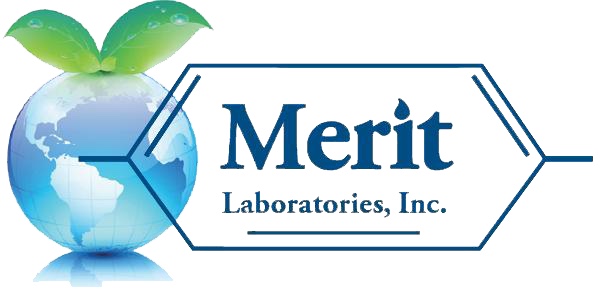To support PFAS investigations, monitoring, and scientific studies, Merit Laboratories has expanded its list of available PFAS compounds for environmental laboratory testing. Merit now provides analytical testing for 46 PFAS compounds by LC/MS/MS with isotopic dilution. Results were validated by the laboratory in an October 2020 Method Detection Limit (MDL) study.
Great Lakes PFAS Summit Goes Virtual; Now Set for October 26 - 30
The first-ever Great Lakes PFAS Summit has gone virtual. The event will bring together scientists, government officials, regulators, academic researchers, industry, and community organizations on all topics PFAS. The virtual summit is now scheduled for a five-day event, set for October 26th - 30th, 2020.
Merit Laboratories Adds Pennsylvania NELAP Laboratory Accreditation
Merit Laboratories has added laboratory accreditation through the Pennsylvania Department of Environmental Protection (DEP). The list of accredited analytical parameters includes metals, organic, and inorganic test methods. The Pennsylvania DEP is a NELAP recognized accreditation body. The Pennsylvania laboratory accreditation is based upon compliance with NELAP and Pennsylvania code, 25 Pa Code Chapter 252.
The First Results of the Kent County PFAS Exposure Study Assessment Released
Significant levels of PFAS have been detected in the blood of Michigan residents in one state county. The results are summarized in the initial report just released by the Michigan Department of Health and Human Services (MDHHS) as part of the PFAS Exposure Study Assessment. This exposure assessment measured serum concentrations of 30 PFAS among a sample of residents in the northern part of Kent County area that previously had validated detectable PFAS levels in their private drinking water.
Understanding the Different PFAS Methods Available
Merit Laboratories offers several analytical options for PFAS. Analytical methods performed by Merit Laboratories include EPA 533, EPA 537 Rev. 1.1, EPA 537.1 ASTM D7979-19 with Isotopic Dilution, and ASTM D7968-17. The following summary will help guide you through selecting the most appropriate PFAS method for your project. EPA 537 Rev. 1.1: This is a drinking water method for 14 PFAS compounds using Solid Phase Extraction and Liquid Chromatography/Tandem Mass Spectrometry (LC/MS/MS).
Merit Laboratories Becomes First Laboratory with PFAS Certification for Drinking Water in Michigan
Merit Laboratories has become the first laboratory to be certified by the State of Michigan for PFAS testing in drinking water. Merit’s certification for PFAS testing, using EPA Method 537.1, is through the Michigan Department of Environment , Great Lakes & Energy (EGLE).
NDAA Amendment Pushes DOD to adopt Michigan’s Strict PFAS Standards
There are many locations in the state of Michigan where PFAS pollution has become widespread and where warnings been put in place such as; ’Do Not Eat’ fish advisories, and ‘No Swim Zones’. For example, residents living near the Wurtsmith Air Force Base, have health advisories in place warning people not to consume fish, deer and other wildlife in several areas, and avoid toxic surface water foam. The federal government, however, has yet to provide a universal, nationwide standard for PFAS.
Michigan’s PFAS Drinking Water MCLs Adopted
The State of Michigan formally adopted a strict set of requirements regulating PFAS in drinking water. The Michigan EGLE announced the adoption of the new maximum contaminant levels (MCLs), which will go into effect on August 3, 2020. The establishment of enforceable MCLs for PFAS compounds will require compliance with the Safe Drinking Water Act (SDWA). Now they are adopted, the PFAS drinking water MCLs replace the current groundwater cleanup standard of 70 ppt for PFOA and PFOS.
New Michigan Legislation for PFAS Exposure Signed by Governor
Michigan has some of the highest levels of PFAS in the United States. Throughout Michigan, many of the state’s streams, rivers, lakes, and drinking water have been contaminated by PFAS chemicals. To help mitigate future PFAS contamination, the State of Michigan has approved two new bills. Governor Gretchen Whitmer signed into law Michigan House Bills 4389 and 4390 on July 8 that regulate the use and reporting of PFAS-containing firefighting foam, including aqueous film forming foams (AFFF).
What Consumers Should Know About PFAS
PFAS, the “forever chemicals,” have the ability to migrate into the air, dust, food, soil and water. They are used in many common products like weatherproof clothing, non-stick cookware, and firefighting foam. PFAS are called “forever chemicals” because they are persistent and bioaccumulate. Persistent means they do not break down in the environment and bioaccumulate refers to the process of building up over time in the blood and organs.











